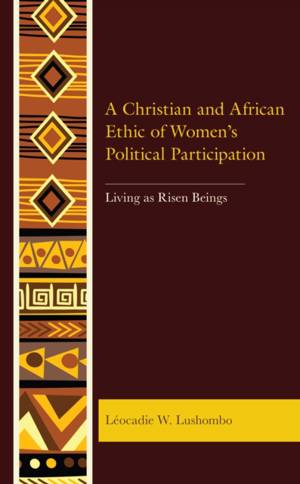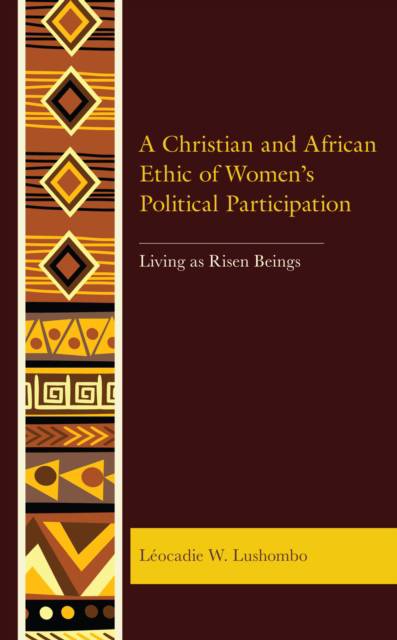
- Afhalen na 1 uur in een winkel met voorraad
- Gratis thuislevering in België vanaf € 30
- Ruim aanbod met 7 miljoen producten
- Afhalen na 1 uur in een winkel met voorraad
- Gratis thuislevering in België vanaf € 30
- Ruim aanbod met 7 miljoen producten
Zoeken
A Christian and African Ethic of Women's Political Participation
Living as Risen Beings
Léocadie W Lushombo
€ 183,45
+ 366 punten
Omschrijving
This book surveys a broad panorama of Christian and African traditions to discover and assess the components that will illuminate and motivate a Christian and African ethic of women's political participation. The author's primary lens for diagnosing the problems faced by women in Africa is Engelbert Mveng's concept of "anthropological poverty" that results from slavery and colonialism. It affects women in unique ways and is exacerbated by the religious and cultural histories of women's oppression. The author advocates an interplay between the sacredness of every individual's life, a salient principle of Christian ethics, and the collective consciousness of solidarity distinctive to African cultures. This interplay can, in turn, foster a more enlightened approach to African masculinity. Using a "sophialogical" hermeneutic, this in-depth study undertakes a moral imagination through narrative criticism. It argues that the existential reality of African women must be addressed as an essential element in the development of Christian socio-political ethic. The righteous, solidaristic, and resistant anger of women can transform patriarchy and inform Catholic social teaching. The author draws on The Circle of concerned African women theologians, postcolonial theorists, inculturation theology, African males, and Jon Sobrino's liberation theology to present an innovative Christian ethic that will radically affect the lives of African women and inform feminist theology.
Specificaties
Betrokkenen
- Auteur(s):
- Uitgeverij:
Inhoud
- Aantal bladzijden:
- 292
- Taal:
- Engels
- Reeks:
Eigenschappen
- Productcode (EAN):
- 9781793647740
- Verschijningsdatum:
- 30/11/2022
- Uitvoering:
- Hardcover
- Formaat:
- Genaaid
- Afmetingen:
- 152 mm x 229 mm
- Gewicht:
- 598 g

Alleen bij Standaard Boekhandel
+ 366 punten op je klantenkaart van Standaard Boekhandel
Beoordelingen
We publiceren alleen reviews die voldoen aan de voorwaarden voor reviews. Bekijk onze voorwaarden voor reviews.








